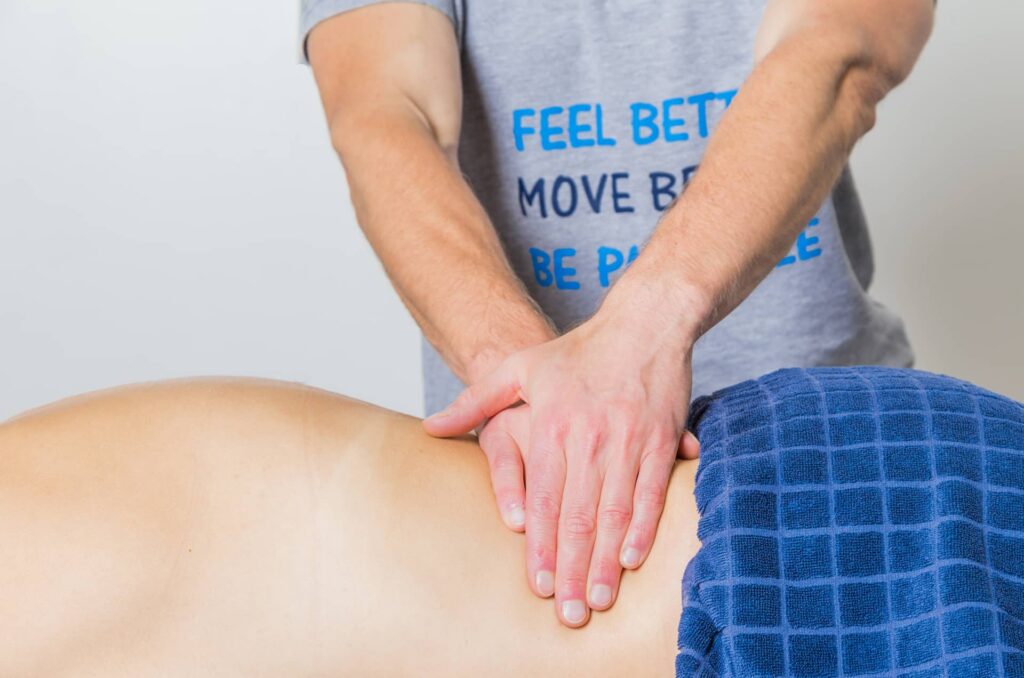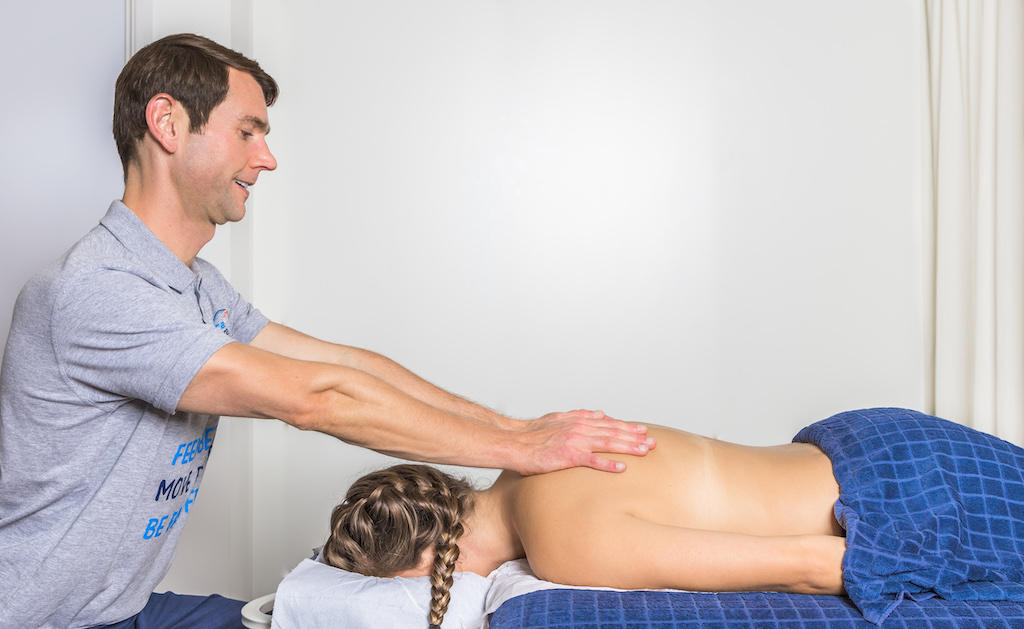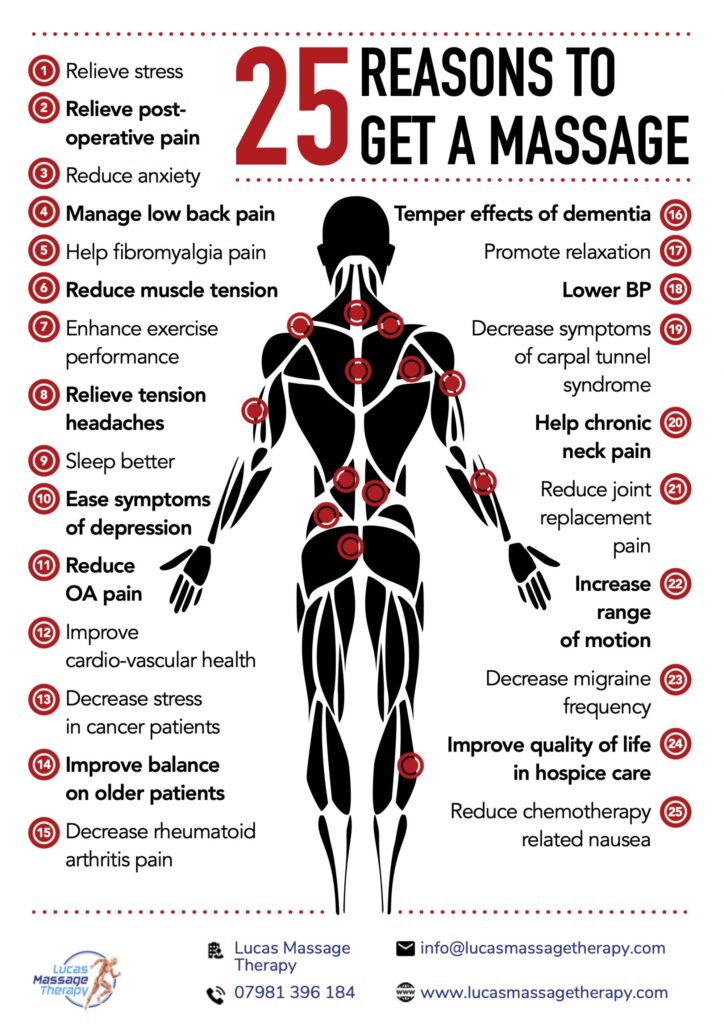Top 7 Massages for Better Sleep Quality. Each individual’s sleep needs vary, but generally, most adults should aim for 7–9 hours of sleep to function optimally. However, many people fail to meet their sleep targets, which affects their productivity and overall well-being. The focus is not solely on the duration of sleep, but also its quality. Disrupted and fragmented sleep, lacking deep REM (rapid eye movement) sleep, can leave you feeling groggy, irritated, and even anxious upon waking.
Insufficient sleep can impact your well-being by weakening your immune system, slowing down your reaction time, and impairing your performance in various areas such as work, home, or sports. It is associated with an increased risk of obesity, chronic diseases, and substance abuse. Chronic insomnia can lead to extreme fatigue, and difficulties in concentration, and have a negative impact on your mood, overall well-being, and relationships.
Prioritizing sufficient sleep is crucial for promoting overall health and wellness. While nutrition and exercise are commonly highlighted for good health, research indicates that high-quality sleep is an essential component of holistic treatment. It is important to note that accumulated sleep debt cannot be fully compensated by catching up on sleep during the weekends.
Instead of passively lying in bed at night, witnessing the passage of time, there are methods to aid your body in achieving sleep. One such method is through the practice of massage. Massage is often misconstrued as a luxury, neglecting the genuine health advantages it offers. Research has demonstrated that massage improves sleep quality for individuals across various age groups and conditions, including infants, children, adults, the elderly, those with psychiatric disorders, fibromyalgia, cancer, heart disease, lower back pain, pain, cerebral palsy, and breast disease.
Massages geared towards enhancing sleep promote an increased duration of deep sleep, the restorative phase where bodily movement is minimal, while simultaneously reducing pain-associated neurotransmitters. When reclining on a massage table and experiencing muscle manipulation, two factors combine to induce relaxation within your body.
Firstly, the absence of physical activity, phone calls, emails, social media, and other external stimuli allows your entire nervous system to unwind and decelerate. Secondly, physiological responses within your body, triggered by touch, pressure, and warmth on the muscle tissues, encourage relaxation by reducing blood pressure and heart rate, elevating serotonin levels (the happy hormone), and alleviating pain and stress through a series of neurophysiological pathways.

Massage benefits for sleep:
- Massage for stress reduction
During a massage, you are compelled to allocate that time for unwinding. Massage has the ability to lower cortisol levels (a stress hormone) while increasing the production of serotonin and dopamine (hormones and neurotransmitters that aid in stabilizing mood). Serotonin is a hormone that induces positive feelings and relaxation, as well as contributing to an overall sense of increased vitality. This energy is particularly crucial in providing the necessary motivation to start the day, eradicating any sluggishness that may otherwise keep us in bed. Utilizing massage as a means to reduce stress and promote relaxation may result in improved sleep quality.
- Production of melatonin
Melatonin plays a vital role in regulating the circadian rhythm, also known as the body clock. This rhythm controls various aspects of hormone release, body temperature, and sleep patterns. Melatonin helps to calm the body and prepare it for sleep. While massage does not directly affect melatonin, it relies on serotonin, a precursor substance. Studies have demonstrated that regular massage increases serotonin levels, potentially leading to higher levels of melatonin. Participants also reported improved sleep. Without melatonin, achieving relaxed and restful sleep would be impossible, preventing the body from undergoing essential restorative processes that typically occur during sleep.
- Managing tension and pain
The relationship between pain and sleep is reciprocal, creating a harmful cycle. Insufficient sleep intensifies the perception of pain, while pain directly interferes with falling asleep and finding a comfortable position. Addressing the pain effectively can enhance sleep quality, and massage therapy may be a viable treatment choice for you. Massage helps alleviate muscle tension, release trigger points, enhance blood circulation for healing, and diminish pain. Additionally, it is valuable to seek guidance from a therapist regarding optimal sleep positions, mattresses, pillows, and other therapies that can alleviate pain and promote better sleep.

Massage can provide benefits for sleep deprivation caused by stress, as well as insomnia associated with various conditions such as anxiety, digestive disorders, fibromyalgia, headaches, myofascial pain syndrome, paraesthesia and nerve pain, soft tissue strains and injuries, temporomandibular joint pain, cancer, and restless leg syndrome.
There are a number of different types of massage, each involving specific practices and goals. Some of the most common massage methods are:
7 Best Massages for Better Sleep
Deep Tissue Massages for better sleep
Deep tissue massages can occasionally cause discomfort due to the application of greater pressure on the muscles, aiming to alleviate tension.
Sports massages for better sleep
Sports massage is a type of massage therapy where the therapist works with the deep tissues, aiming to reduce muscle tension, discomfort and pain. Although sports participants benefit from sports massage, this method of massage isn’t restricted to sports participants or athletes alone, as deep tissue massage techniques can be used to treat a wide variety of conditions.
Trigger Point Therapy
This type of massage focuses on trigger points, which are tense spots in the muscles.
Reflexology
This specific massage technique targets reflex zones located on the feet. By targeting these zones, the massage helps alleviate pain, relieve tension, and enhance circulation in the corresponding areas of the body.
Aromatherapy
The massage technique employed in this treatment is characterized by its seamless and fluid approach. Its primary objective is to induce a state of deep relaxation, enhance blood circulation, and improve overall mobility while effectively alleviating muscle tightness. Various oils with potential properties to promote rest and tranquillity are available for selection during the session.
Manipulation
This massage technique encompasses more than just rubbing; it includes stretching and manipulating ligaments, tendons, and muscles to enhance mobility.
Swedish massages for better sleep
A Swedish massage, also known as classic massage, seeks to induce muscle relaxation and enhance blood flow through techniques of kneading, rubbing, and tapping applied to targeted regions. Swedish massages for better sleep. Sometimes referred to as classic massage, a Swedish massage aims to relax the muscles and improve circulation by kneading, rubbing, and tapping affected areas. Deep tissue massages for better sleep.
Deep tissue massage focuses on targeting deeper layers of muscles and connective tissue to relieve tension and promote relaxation. Hot stone massages for better sleep. Hot stone massage involves placing heated stones on specific points of the body to relax muscles and alleviate stress. Aromatherapy massages for better sleep. Aromatherapy massage combines the use of essential oils with massage techniques to enhance relaxation and promote better sleep.
Thai massage for sleep. Thai massage involves deep stretching and rhythmic compressions to release tension and increase flexibility, leading to improved sleep. Sports massages for better sleep. Sports massage is designed to help athletes recover from injuries and improve performance, which can indirectly contribute to better sleep. Shiatsu massages for better sleep. Shiatsu massage involves applying pressure to specific points on the body to promote relaxation and balance, which can aid in achieving a more restful sleep.
Massage is a beneficial, natural alternative that has assisted numerous individuals in overcoming sleeplessness. By indirectly increasing serotonin levels, massage can positively impact sleep by enhancing melatonin, a hormone that influences the sleep stage of a person’s circadian rhythm. To promote a good night’s sleep, it is advisable to elevate melatonin levels in the evening by reducing light exposure and avoiding bright screens before bedtime.
Engaging in activities like meditation and deep breathing exercises can also aid in relaxation. The following day, increasing serotonin levels can be achieved by welcoming sunlight, opening curtains, spending time outdoors, exercising, and scheduling a massage.
7 Best Massages for Better Sleep – Massage benefits


